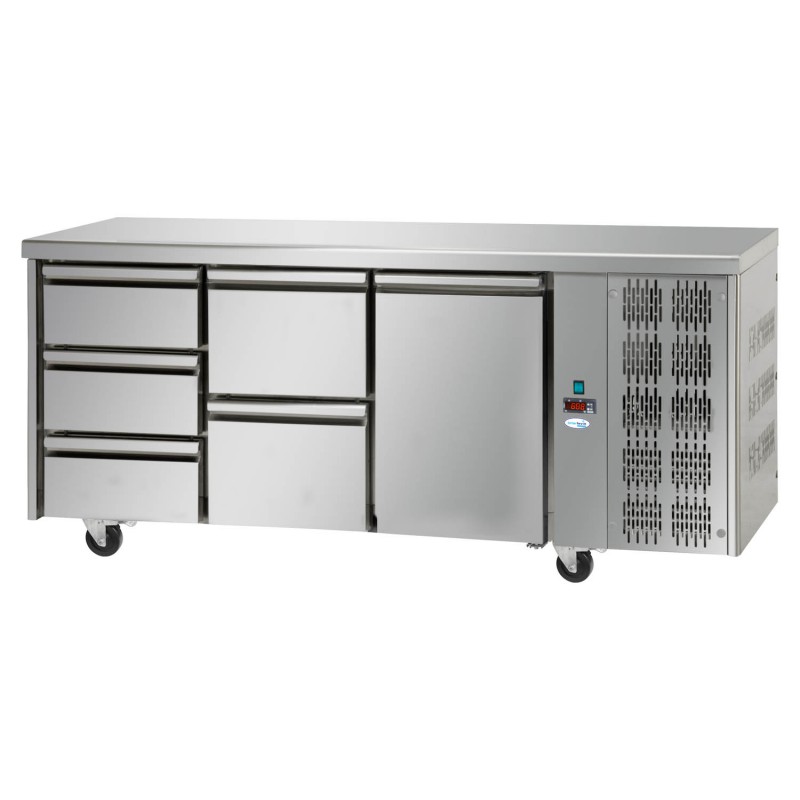
Commercial refrigeration is central to the operation of any professional kitchen and when this fails it can wreak havoc. Let’s face it, refrigeration is an expensive piece of kit therefore prolonging lifespan and avoiding costly breakdowns is essential to getting your money’s worth.
While manufacture is robust and reliable you still need to carry out routine maintenance to achieve ongoing excellence. Prevention of potential breakdowns is easier and a lot cheaper than dealing with problems after they arise.
*Before starting any maintenance work always unplug your equipment!
Areas to concentrate on;
Condenser coil
- This may be in a different location on each unit so refer to the user manual, ask the technician who installed the unit or speak to your supplier.
- The coil should be cleaned at least once a month, removing any dust, lint, and dirt or grease build-up.
- Use a specialised condenser coil cleaner, brushing from top to bottom and never side to side. If any fins are bent, straighten them carefully with a comb.
Fan Blades and Motors
- These elements should be cleaned once a month with a soft cloth running over both the motor and the blades.
- If you find that the blades need washing always cover the motor with a dry cloth to protect from moisture.
Vents
- The fan and motor are often covered externally by a vent. This can often become blocked with dust, grease and kitchen debris. Regularly clear away any build-up to ensure a clean and unobstructed flow of air to the motor.
Interior
- Never use any caustic cleaning chemicals, bleach or wire wool to clean the interior of your refrigerator. Not only can they damage the finish but can also result in lingering chemical odours that can affect food.
- Using a mild soap and warm water dilution is the safest and most effective way of achieving a gleaming finish.
- Thorough cleaning should be carried out once a week unless any spills occur which must be dealt with immediately.
- All shelves should be removed and cleaned in a similar manner at least once a week.
Door Gaskets
- Once a week the door gaskets should be removed and allowed to soak in a mild soap and water mixture for around 30 minutes.
- Always completely dry gaskets before replacing, checking for any damage or wear and tear that could affect the efficiency of the unit.
- After reattachment always ensure that a tight seal is achieved whilst the doors ae closed signalling that fitting is correct.
Other than cleaning you should also be regularly checking the general performance of the equipment; any variations in conditions could be the first signal that something isn’t quite right and may alert you to a potential problem before something more serious occurs. Pay particular attention to;
- holding temperatures
- lighting
- thermometer readings
- all door hinges
- condition of handles
With a regular attention and a little T.L.C you can ensure that your refrigeration continues to perform at optimum levels and your kitchen continues to function smoothly.

Leave a Comment
Your email address will not be published. Required fields are marked *